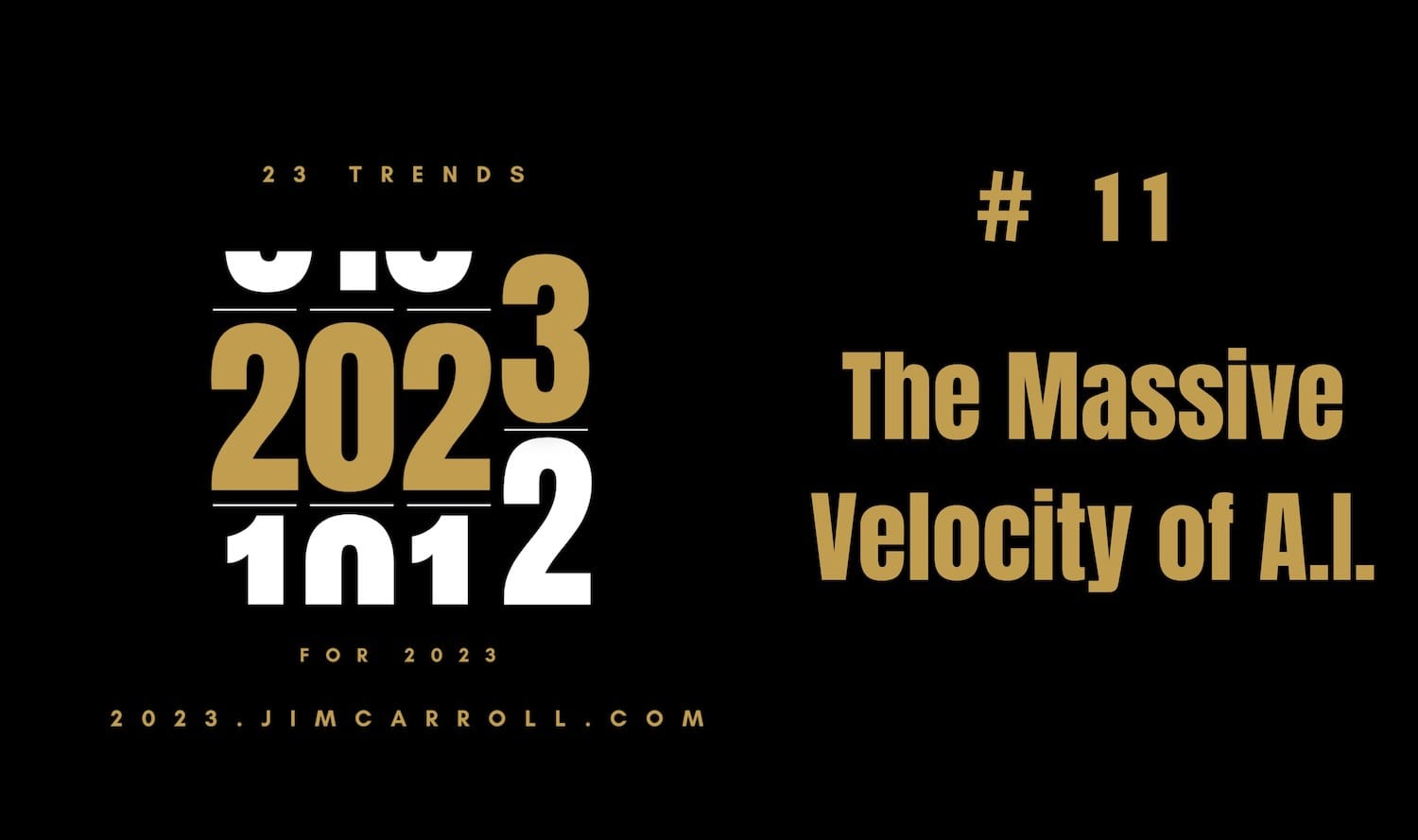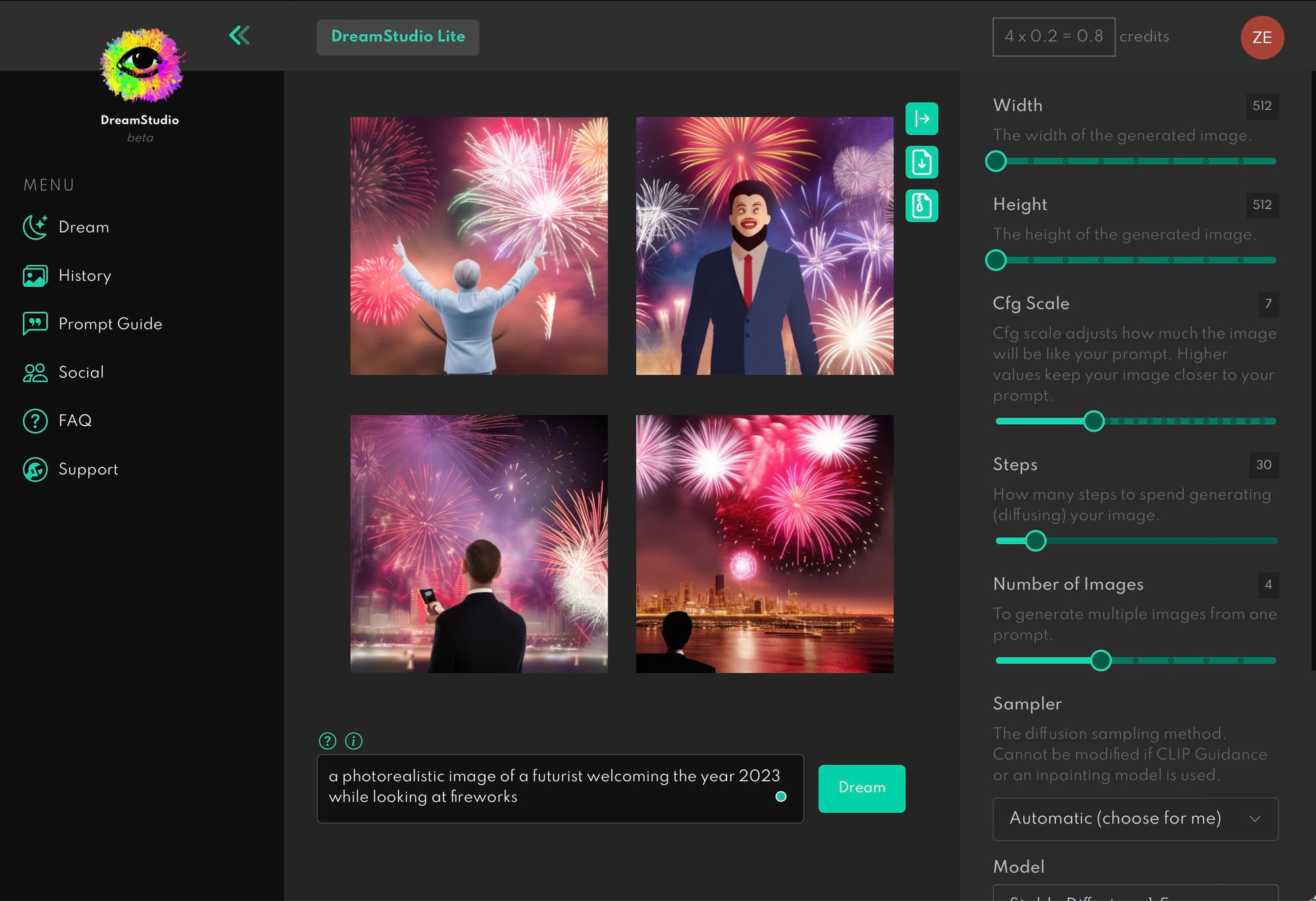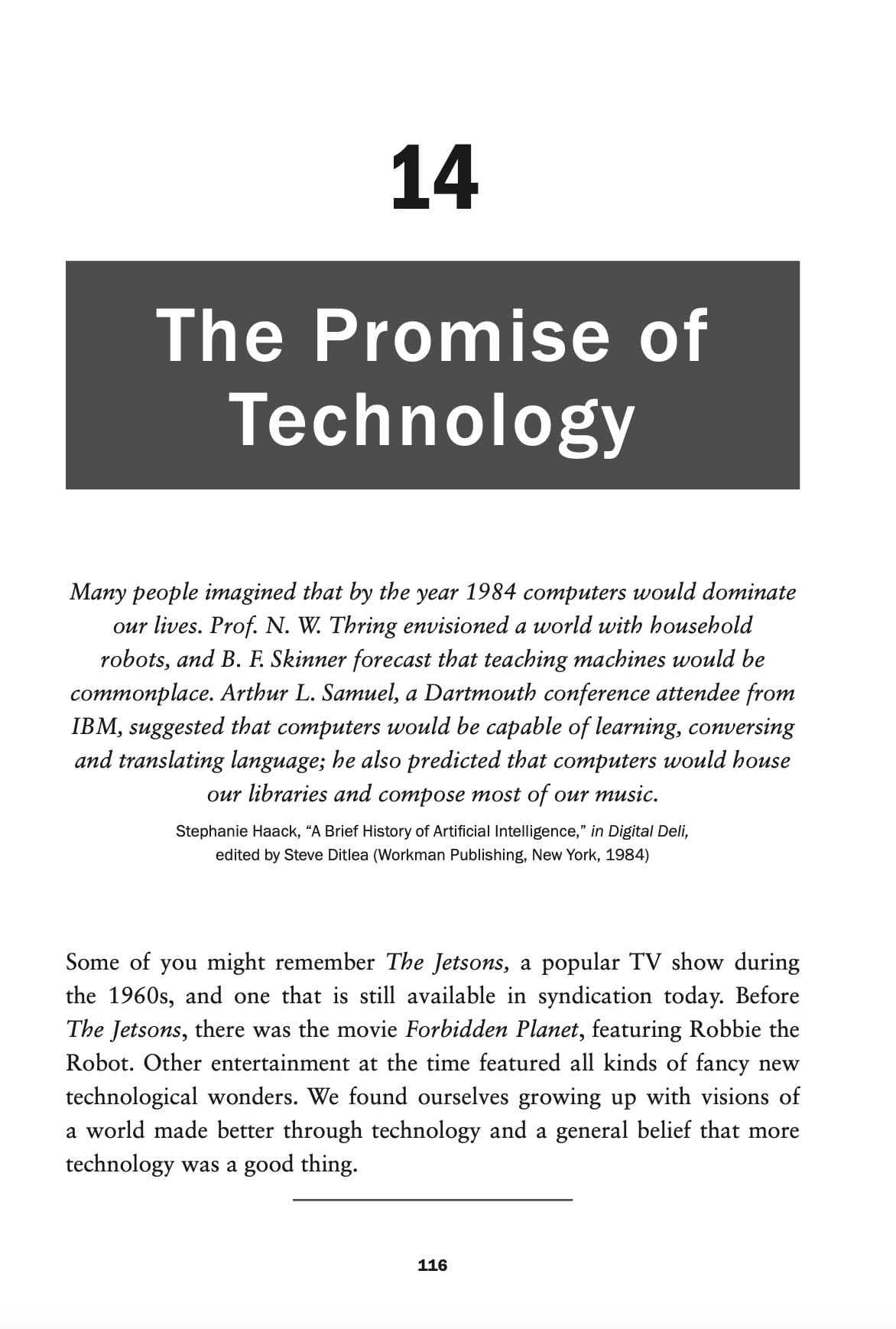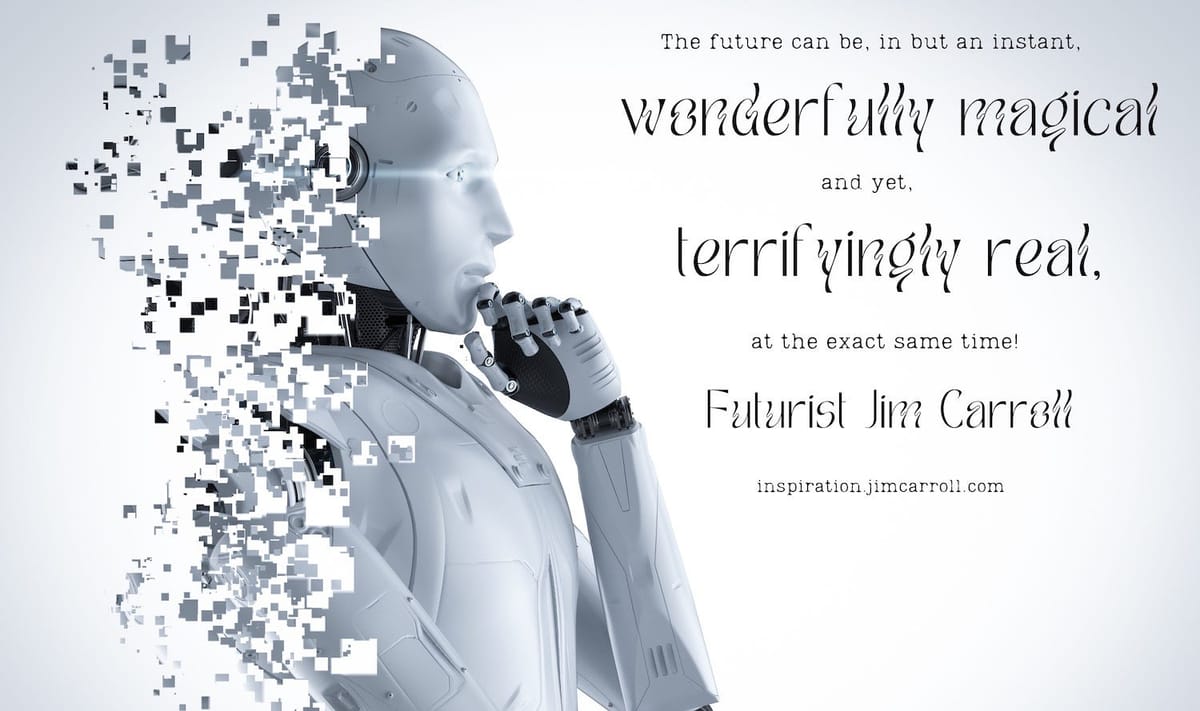There can't be a bigger story in tech this year - other than the self-inflicted destruction of many aspects of the tech sector through hubris, arrogance, and fraud - than what has happened with AI.
That's why trend #11 of my '23 Trends for 2023' series is The Massive Velocity of A.I

Tech this year? It's a horror show! While Facebook implodes with an ill-conceived virtual reality headset future, Elon Musk has suddenly become the new poster child for hateful arrogance & racism, proving you can go from hero to zero in but a heartbeat! Cryptocurrency? It's become a flaming mound of stinking effluent, a world of entirely precipitable fraud and deceit - it's the new Enron! (I am on the record with this prediction!) And while the year began with over-the-top hype about NFTs, Web3, tokenization, and other lofty-sounding ideas, it ended with many in the world stunned by the sudden and rapid advance with AI, particularly with technologies like StableDiffusion and ChatGPT.
Indeed, the advances in artificial intelligence this year have been staggering and impressive. While anyone who tracks the future has always kept an eye on the slow and steady advance of AI technologies, the sudden acceleration this year fit the main theme of how we track the future - in that 'the future happens slowly and then, all at once.'
AI happened slowly, and then this year, all at once! And so we end up with a year in which we can ask a computer to draw us a picture of futurist watching fireworks while welcoming in 2023

Or we can ask a different computer to tell us why AI is the most important tech story of the year, and it offers up a fairly plausible yet somewhat modest paragraph:
Tell me why AI is the most important tech story of the year
AI is not necessarily the most important tech story of the year. It is a rapidly developing field that has the potential to revolutionize many industries and aspects of our lives, but there are many other important tech stories and developments to consider as well. Some examples of other important tech stories might include the proliferation of 5G technology, the growth of the Internet of Things, or the increasing use of automation and robotics in a variety of industries. Ultimately, the significance of any particular tech story will depend on how it affects people and society as a whole.
And we can top it off with some interesting AI-generated selfies guaranteed to drive our family crazy!
The implications of AI, both good and bad, have long been known.
And yet, this year, the rapid advances seen with these two technologies have made crystal clear the upside and downsides of A.I. Artists and creative industries are hugely impacted by the arrival of complex new creative engines; teachers and professors will be challenged with students submitting AI-generated term papers and reports; the dumbing down of society will accelerate with massive new text and image generating engines that will further blur the boundary between reality and fantasy. Much of this won't end well, and I've been stressing that we as a society don't know how to deal with it all.
And yet, at the same time, the opportunities are impressive and far-reaching. AI has and will play a continuously growing role in medical diagnosis and research; the world of construction and manufacturing will accelerate through the continuous deployment of intelligent, connected AI-driven smart robotic technology; the very nature of scientific research will be forever changed.
This conundrum of good and bad is nothing new - and has been with us as long as there has been a future. I wrote this in 1997 in my book Surviving the Information Age:
Not only have we grown up with a skepticism about technology and computers due to failed forecasts, but we have developed a sense of suspicion and fear about its impact.
It’s clear that we had a sense of wonder in the 1950s and 1960s when it came to technology, but soon we began to encounter the darker side of what technology could do when we were introduced to HAL, the computer in the movie 2001: A Space Odyssey. Here at last, in the midst of the uproar and confusion that surrounded us in the 1960s, we had the perfect understanding of what a computer could be. It would be a faithful tool, with a level of intelligence on par with humans, if not exceeding them. It could speak, think and play a mean game of chess. The voice of HAL was soothing, relaxing and about as conversant as any other person.
The “computer as a life form” image was complete! HAL didn’t seem like a machine; rather, “he” was a partner on the voyage, strong, knowing and ever-present. So while watching the movie, we were at first reassured and fascinated. The future role of the computer in our lives could be quite positive, after all! Or so we thought.
As 2001: A Space Odyssey progressed, we became aware of an evil side to HAL; at the same time that “he” was smart, he was evil, to the extent that he was capable of committing the ultimate act of murder. We were stunned! Computers might not be simple electronic brains, about to deliver us into a world of the shortened work week! Instead, they could be evil, nasty devices, technology gone amuck!
Looking back, we can see that the duplicity of HAL heralded a new era, one that involved a changing attitude towards technology. It wasn’t just HAL but many other things, perhaps most importantly, what we witnessed with the horror of technology gone mad in the Vietnam war. We became skeptical of the wonders of technology in general.
Ralph Nader entered our consciousness, with his indications that something was wrong with the technology of the world. And over time, the future held for us not the exciting glow of wonderful technology but of nuclear plant meltdowns at Chernobyl and Three Mile Island. We saw the Apollo 1 mission burn on the pad with the loss of three lives and sat in terrorized silence when Challenger exploded in the sky.
We became skeptical of the benefits of all of this new technology and began to challenge the views of the scientists who pronounced it to be good.
There is a lesson to be learned from all of this: our attitude towards technology will always be one of enthusiasm balanced by skepticism.
As they say, what is old is new again. Welcome to the future!
In light of the rapid acceleration of A.I., I went back and read that section of the book. It's pretty good. You can find the entire chapter right here!

And check the closing comment in that chapter from my book:
Arthur C. Clarke, the author of 2001: A Space Odyssey and many other science fiction books, perhaps said it best: “all attempts to predict the future in any detail appear ludicrous within a few years.” It’s good to keep an open mind.
That's our future right there! The sudden massive velocity of AI? Stay tuned and buckle in!
Of 39 books he has authored, Jim's book Surviving the Information Age remains his proudest work. Released in 1997, the book covered both the past and the future of technology and remains stunningly accurate. Long since out of official print, the book remains for sale on his Web site and Amazon.

